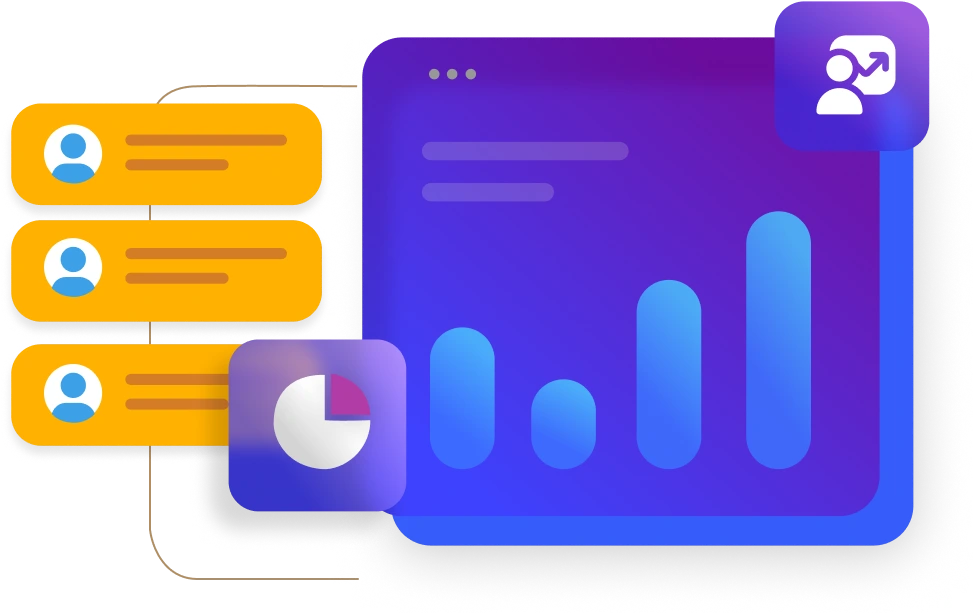Myths About SEO and Organic Traffic that Might Surprise You

When you have a great position in Google, life is good.
Call it “Organic SEO nirvana.”
You can sit back and let the clicks roll in, trusting your sales funnel to do the rest. The problem is that not many people know what makes for a great position in Google these days. After all, the industry has been around a long time now. And like any industry that’s been around a while, some myths have emerged. Even some “experts” hold on to out-of-date assumptions. Meanwhile, the main search engines like Google and Bing continue to refine their features. If you’re not changing with the times, you’re only going to get passed by.
That’s why we’re going to take some time to dispel a few SEO and organic traffic myths that sound accurate, but may do you more harm than good:
Myth #1: Organic SEO Results are All About Your Rank
Maybe in an uncrowded pool.
See Your Potential ROI with leadpops
See what's possible. Fix it fast.
But the truth about SEO in 2019 is that you don’t have to rank for influential keywords in your industry if you want top-quality organic traffic.
Instead, you have to know what your target audience is searching for.
Let’s take the example of a mortgage marketer.
The idea of ranking #1 for “mortgage” would seem like a distant pipe dream, but a worthy ambition.
But what if you don’t need it?
After all, when you go for big-ticket keywords, yes, you get traffic. But you also roll the dice when it comes to targeted traffic.
Book My FREE
Growth Strategy
Session
See what's possible. Fix it fast.

Someone looking up “mortgage” might simply be doing research.
Or, they might be legitimate investors looking up mortgage rates.
In this case, they could be anybody, really.
To be a successful mortgage marketer, you don’t want just anybody.
Said differently, it’s true that getting a lot of organic traffic depends on high volume of search results.
But it doesn’t mean that you’ll always do best by ranking for the most popular keywords.
See Your Potential ROI with leadpops
See what's possible. Fix it fast.
If you don’t believe me, take a look at your current analytics.
What are your top organic traffic sources?
How many of those traffic sources did you specifically target?
If you want to focus your efforts properly, it helps to understand that not all organic SEO results are built on raw rank for big-target keywords.
You’ll do just as well by ranking well for the most relevant questions your potential customers are asking.
When you want truly organic traffic—the kind of traffic that connects you to the people who are most looking for a service like yours—you need to get more targeted in your approach.
Book My FREE
Growth Strategy
Session
See what's possible. Fix it fast.

Myth #2: It’s All About On-the-Page Keyword Manipulation
Ever have an SEO expert tell you to put a certain keyword in the title of your post…
…only for it to have absolutely no effect at all?
Back in 2013, Google released its Hummingbird algorithm.
Now, Google’s searches aren’t just about the keywords.
They’re also about what the user is thinking.
See Your Potential ROI with leadpops
See what's possible. Fix it fast.
Google isn’t a mind-reader.
But they do have technology that allows them to link future search results with the context of previous search results.
In other words, you have less direct control.
Stuffing a page with keywords isn’t going to work anymore.
What will work?
Answering the questions of people who are seeking out something like your site.
Book My FREE
Growth Strategy
Session
See what's possible. Fix it fast.

After all, “organic search” isn’t a matter of satisfying the search engines.
It’s about satisfying the end-user.
The end-user is the customer for the search engine, just as the end-user is your potential lead.
That means you need to tailor your SEO efforts into creating relevant, informative, useful content that people—not robots—will enjoy.
Myth #3: Only National Organic Search Matters
Call it part of the “more traffic is always better” myth: people have this belief that if they can capture national organic traffic, they won’t have to rely on local SEO.
See Your Potential ROI with leadpops
See what's possible. Fix it fast.
But local SEO is important.
Moz’s State of the Industry report in 2019 found that 64% of marketers agreed that Google is essentially becoming the new local business home page.
Again, it all comes back to the end-user.
When someone searches for your business, they’re looking for familiar information. Website. Hours. Address. Phone number.
If you aren’t optimized for this, then you’re not creating a valuable “storefront” for your business.
Shouldn’t you pay more attention to those customers who are directly searching for you?
Book My FREE
Growth Strategy
Session
See what's possible. Fix it fast.

Myth #4: Quantity Over Quality
There was a day in which the quantity of the links pointing to you played a major role in how relevant your site was.
After all, if several links were pointing to your site based on a particular keyword, there was a good chance that meant that your content was relevant to users.
But over time, SEO experts would focus hard on quantity over quality.
The result was many links pointing to several pages—and a lot of confusion for the user.
Google changed that with Penguin 2.0 in 2013, focusing on the quality of the links that are headed your way.
See Your Potential ROI with leadpops
See what's possible. Fix it fast.
Therefore these days, it’s not quite so important to obtain high-quantity links.
Nor can you get great SEO from submitting your link to link farms or directories.
The sheer irrelevance of this strategy just isn’t worth the effort.
However, you can boost your organic SEO when you focus on putting together great content that draws the attention of major sites.
“High-quality” links in this case refer to links from other reputable websites.
The more you can land your links on those sites, the more credibility you’ll have.
Book My FREE
Growth Strategy
Session
See what's possible. Fix it fast.

True, that’s created a similar goal in SEO: content farmers are eager to get their guest posts on major blogs.
But in many cases, the strategy forces people to focus on the user again: creating valuable content that’s worthy of these highly-relevant links.
Myth #5: You Can Meta Your Way to SEO Success
It’s an old myth by now: the idea that you can affect your rankings by optimizing your meta tags with the appropriate keywords.
Google has long since done away with that myth.
They’ve announced—as long as a decade ago—that meta descriptions don’t really matter.
See Your Potential ROI with leadpops
See what's possible. Fix it fast.
But that doesn’t mean you shouldn’t pay attention to them, either.
Your meta tags will have an impact on the way your page is perceived on a website like Google.
By creating relevant meta descriptions, you increase your chances of having a higher click-through rate.
And because Google wants to reward those pages that attract attention from people who are searching for specific key terms, a higher click-through rate is vital for organic search results.
If you’ve ever worked online before, you know the idea of a click-through rate, or CTR, is nothing new.
But how do you ensure that you get more people to reward your online presence with clicks?
Book My FREE
Growth Strategy
Session
See what's possible. Fix it fast.

How do you drive online, organic traffic in 2019 and 2020?
It starts by paying attention to what people want.
You have to create genuinely interesting content that your leads will want to click before you focus on the organic results.
If you don’t have the draw, don’t expect the results to follow.
But if you do—your SEO will be a lot easier.
Sign up for a free trial of leadPops to try it out for yourself.
See Your Potential ROI with leadpops
See what's possible. Fix it fast.



